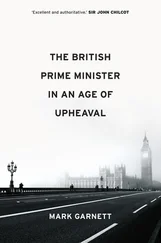Members of Parliament from constituencies on the east coast, the closest part of Britain to Germany, bombarded the First Lord of the Admiralty, Lord Selborne, with difficult questions. In response, he ordered the Naval Intelligence Division to write a detailed report on the invasion plan outlined by Childers. After reconnaissance of the Frisian coast, the report concluded that the lack of railways and roads, together with the shallowness of the water and general lack of facilities, made a secret invasion from there impossible. ‘As a novel it is excellent; as a war plan it is rubbish,’ insisted Lord Louis Battenberg, the director of naval intelligence. To Childers’ barely disguised delight, the Kaiser banned the book in Germany. Childers also claimed that when he next went sailing in the Baltic, German spies dogged his every move.11
Spy fiction developed a darker side, shifting its focus closer to home, portraying immigrants and foreign visitors as the hidden hand of subversion. The new trope was Germans as a hidden fifth column already within Britain. Most active of all was a mischievous thriller-writer called William le Queux. He almost single-handedly created a fifth-column panic and then demanded the creation of a domestic security service to combat the undercover ‘German Menace’, with which the day of reckoning would surely come.12 Le Queux’s The Invasion of 1910 became the most influential of these books. Published in 1906, it told of German armies over-running the country with the help of spies and saboteurs. Le Queux admitted to a political purpose, explaining his intention to illustrate how poorly British defences would stand up to this sort of sneak attack. He also insisted that the content of his book was factually correct, and had been informed by conversations with ‘the authorities’.13
William le Queux posed as an international espionage expert, but was in fact nothing of the sort. Instead, he was a tireless and well-paid pulp-fiction writer who produced five novels a year until his death in 1927.14 The Invasion of 1910 sold more than a million copies, and publicists at the Daily Mail , which possessed serialisation rights, sent columns of men marching up Oxford Street dressed in Prussian uniforms, complete with bloodstained gloves, carrying sandwich boards that advertised the book.15 An inevitable flood of literary emulators hit the presses as le Queux’s royalties rolled in. Not to be outdone, le Queux responded in 1909 with Spies of the Kaiser , which insisted that no fewer than 5,000 German undercover operatives were at work in Britain. This was a new idea. A whole undercover army, not just a few spies and saboteurs, were apparently biding their time until the Fatherland told them to retrieve their weapons from a series of arms dumps in the British countryside. No less important, the novel also claimed to offer the inside story of intrepid British detectives working with agents to uncover these foreign networks.16
The British public were whipped into a frenzy. Politicians who wanted to expand Britain’s relatively small peacetime army jumped on the bandwagon. In 1908 Lord Roberts, Britain’s most distinguished soldier, claimed there were 80,000 trained undercover German soldiers in England ready to assist in the event of an invasion.17 Newspapers offered £10 to members of the public who reported sightings of suspicious activities that they could pass on to le Queux so he could ‘supplement his investigations’. Unsurprisingly, they were inundated with information, and soon it seemed a supposed German saboteur had been spotted in every town in the land,18 including some unfortunate Foreign Office clerical staff holidaying on the east coast.19 The government was annoyed by the obvious political scheming by advocates of increased arms spending. In 1906, Asquith’s predecessor as prime minister, Henry Campbell-Bannerman, rose to his feet in Parliament to denounce le Queux as a ‘pernicious scaremonger’ whose stories risked provoking an unnecessary war with Germany.20
Despite prime ministerial condemnation, several key figures in government worked hand in glove with le Queux. James Edmonds, head of a fledgling military intelligence unit called MO(5), maintained that Berlin had an extensive ring of operatives in Britain. Edmonds had long been nagging a dismissive Richard Haldane, secretary of state for war under both Campbell-Bannerman and Asquith, about the shortcomings of British counter-espionage. He therefore found le Queux’s activities more than welcome.21 Indeed, much of the evidence that he presented to his masters came from le Queux, who in turn said that he had received it from concerned members of the public. There had only been five cases of German espionage reported in 1907, but unsurprisingly by 1908 this had risen to forty-eight. Edmonds created a helpful map of agent sightings. Perhaps equally unsurprisingly, this was soon leaked to the press. He also recruited William Melville, the former head of Special Branch, who while a talented agent-runner, had a reputation for embellishing his stories.22
By 1909, nefarious German agents were apparently hiding behind almost every bush in Britain. Asquith, however, had other things on his mind. His overwhelming, and rather challenging, priority was to take on and reform the House of Lords, which had consistently blocked his progressive agenda. The time and energy he devoted to this issue only increased further when the Lords famously rejected his government’s budget in 1909. But with the public suffering from spy-fever, the prime minister now had to take note of intelligence matters. As chancellor of the exchequer and in his early months as prime minister, Asquith had already chaired a senior committee to consider the invasion threat in response to pressure from Roberts and le Queux. His report demolished their theories, and showed a surprise attack to be impossible.23 Nonetheless, still under immense public pressure, in 1909 Asquith asked the Committee of Imperial Defence to consider the danger of foreign agents operating in the UK. All this accelerated an important cultural change away from the idea that counter-espionage at home was authoritarian and un-British.24
Although flawed and bogus intelligence reports shaped its ultimate findings, Asquith swiftly sanctioned the committee’s recommendation to establish a new Secret Service Bureau. This top-secret decision – very few people knew about the bureau’s existence – fundamentally altered the landscape of British intelligence forever. British espionage was nothing new, but its formalisation and growing proximity to Downing Street marked the beginning of a more organised and centralised intelligence system. It was not yet, though, an intelligence community linked to Downing Street, and early prime ministers remained unable or unwilling to engage with the secret world particularly closely.
The Secret Service Bureau was comprised of two branches. MO5(g) was the domestic branch, responsible for counter-espionage, and would soon come to be known as ‘MI5’, or the security service. It inherited a number of army counter-intelligence officers, and was led by Captain Vernon Kell, deputy to James Edmonds at MO(5). Kell went on to serve continuously in the role for more than twenty years. Ever present around intelligence matters for nearly half a century, Winston Churchill, as home secretary, oversaw Kell’s appointment. Adding a symmetry to Kell’s long career as spymaster, Churchill, when prime minister, would remove him from office in 1940.25 The Secret Service Bureau also had a foreign branch. Initially called MI1c, it soon restyled itself MI6, and was headed by the remarkable figure of Sir Mansfield Cumming, a retired naval officer. Despite losing his leg in a traffic accident in France, Cumming continued to run MI6, speeding down the corridors of Whitehall by planting his wooden leg firmly on a modified child’s scooter. MI5 was a small organisation and MI6 even smaller, but a key change had occurred. Hitherto, individual government departments, especially the India Office, had gathered intelligence locally and conducted espionage for their own purposes. Now Whitehall had an interdepartmental intelligence machine at the centre, delivering a ‘service’ to all government departments and anointed with the cult of specialness.26
Читать дальше












